Your Mitsubishi Electric AC may not be working due to potential issues with the power supply, faulty thermostat, clogged air filters, or an overload of the system. This article will provide you with practical troubleshooting tips to identify and resolve such problems, ensuring your AC operates efficiently and effectively throughout the year.
Having a reliable air conditioning system is essential for maintaining a comfortable indoor environment. So, when your Mitsubishi electric AC not working properly, it can be frustrating and inconvenient. Understanding the common reasons behind this issue can help you troubleshoot and resolve the problem quickly.
This article will provide you with valuable insights into the potential causes of a malfunctioning Mitsubishi electric ac and offer practical solutions to get it back up and running smoothly. By following these tips, you can ensure that your ac unit continues to provide you with optimal cooling and total comfort.
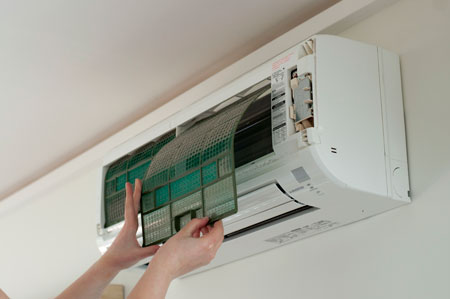
Possible Causes Of Inadequate Cooling
If you’ve noticed that your Mitsubishi electric ac is not effectively cooling your space, there could be several reasons behind it. Understanding the possible causes can help you diagnose the issue and find the appropriate solution.
Here are some key points to consider:
Clogged Air Filters:
- Accumulation of dirt, dust, and debris in the air filters can restrict airflow and hinder the cooling process.
- Reduced airflow can result in inadequate cooling and cause your ac to work harder, leading to higher energy consumption.
- Regularly cleaning or replacing the air filters is crucial to maintain optimal cooling performance.
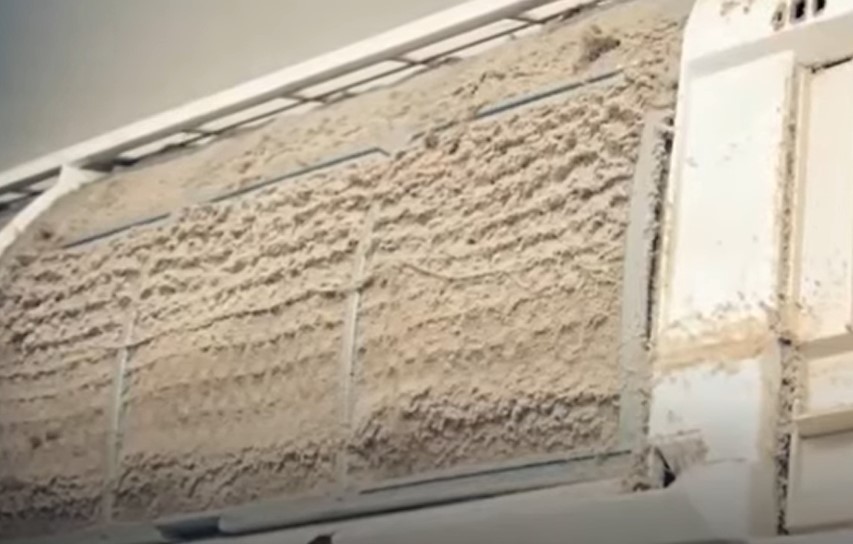
Insufficient Refrigerant Levels:
- Refrigerant is responsible for absorbing heat from the indoor air and releasing it outside. Inadequate refrigerant levels can hamper the cooling process.
- The lack of refrigerant can be due to leaks in the system, which need to be promptly addressed by a professional technician.
- It’s essential to have your ac system inspected regularly to ensure proper refrigerant levels and prevent cooling issues.
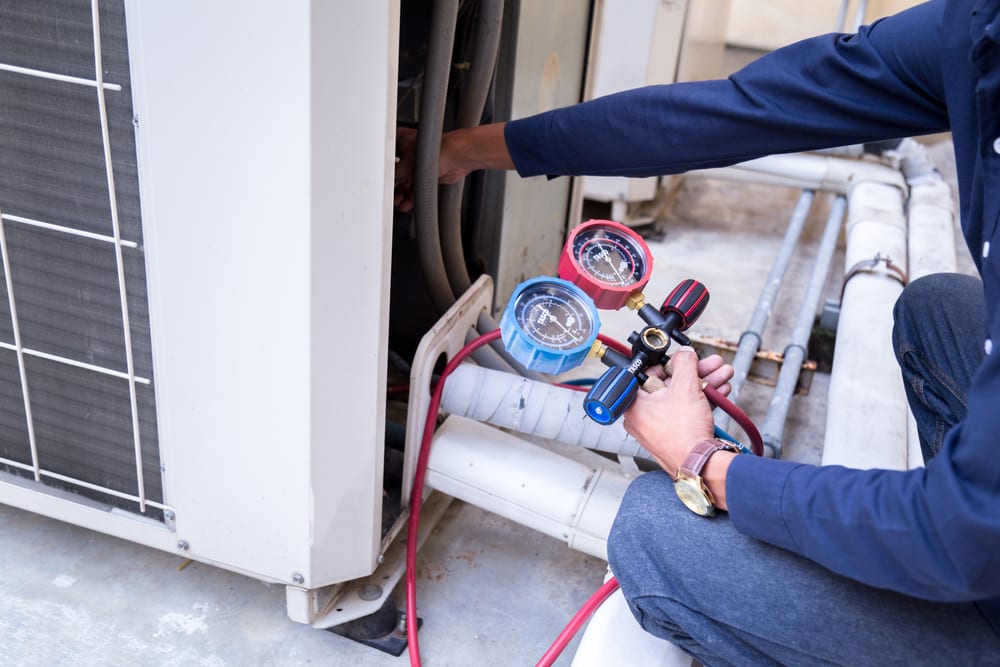
Faulty Thermostat:
- A malfunctioning thermostat can affect the cooling cycle of your ac, resulting in inadequate cooling.
- Inaccurate temperature readings or incorrect settings on the thermostat can lead to issues with cooling performance.
- Check the thermostat settings and make sure they are accurate. If necessary, calibrate or replace the thermostat to resolve any cooling problems.
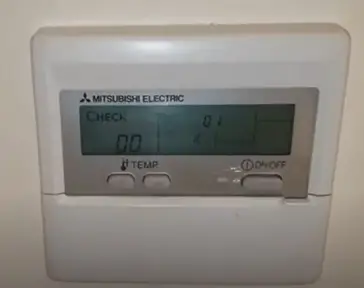
When faced with inadequate cooling from your Mitsubishi electric ac, be sure to consider these possible causes. Regular maintenance and professional assistance can help you address these issues effectively, ensuring optimal cooling performance and a comfortable environment.
Troubleshooting Steps To Fix Cooling Issues
Is your Mitsubishi electric ac not working properly? Don’t worry, we’ve got you covered. In this section, we will discuss some troubleshooting steps that can help you fix cooling issues with your ac unit. Follow these steps before calling a professional technician, as they may save you time and money.
Check And Replace Air Filters
One of the most common reasons for cooling issues in an ac unit is dirty or clogged air filters. Here’s what you need to do:
- Begin by locating the air filters in your Mitsubishi electric ac unit.
- Remove the filters and inspect them for any visible dirt or debris.
- If the filters are dirty, it’s time to clean or replace them. Cleaning can be done by gently vacuuming or washing the filters, depending on the type.
- If the filters are damaged or too dirty to be cleaned, it is recommended to replace them with new ones.
- Regularly checking and replacing or cleaning the air filters every 3 to 6 months can greatly improve the performance and efficiency of your ac unit.
Inspect And Recharge Refrigerant Levels
Another potential cause for cooling issues is low refrigerant levels. Here’s how you can inspect and recharge the refrigerant:
- Locate the refrigerant lines in your Mitsubishi electric ac unit.
- Check for any visible signs of leakage, such as oil stains or frost.
- If you suspect a refrigerant leak, it’s important to contact a professional technician for repairs, as handling refrigerant requires specialized training and equipment.
- If there are no visible signs of leaks, it may be necessary to recharge the refrigerant levels. This should also be done by a qualified technician to ensure proper handling and optimal performance of your ac unit.
Test And Adjust Thermostat Settings
Sometimes, cooling issues can be attributed to incorrect thermostat settings. Consider the following steps to test and adjust the thermostat:
- Start by checking the temperature settings on your ac unit’s thermostat. Ensure that it is set to a lower temperature than the current room temperature.
- If the settings appear to be correct, you can proceed to test the thermostat by turning it off and then on again.
- Observe whether the ac unit kicks in and starts cooling the room. If not, try adjusting the temperature settings slightly lower to see if that makes a difference.
- Ensure that the thermostat is also free from any obstructions, such as furniture or curtains, that could affect its ability to accurately measure the room temperature.
- If adjusting the thermostat settings does not resolve the cooling issues, it may be necessary to consult a professional technician for further diagnostics and repairs.
Remember, troubleshooting steps can vary depending on the model and type of ac unit you have. If you’re unsure or unable to identify the issue, it’s always best to seek professional assistance. By following these troubleshooting steps, you’ll be on your way to restoring the cooling performance of your Mitsubishi electric ac unit.
Potential Reasons For Foul Smells
Is your Mitsubishi electric ac emitting a foul odor? Don’t worry, we’re here to help you identify the potential reasons behind these unpleasant smells. Read on to learn more about the common culprits and what you can do to tackle them.
Accumulated Mold Or Mildew
A musty smell wafting from your Mitsubishi electric ac may be an indication of mold or mildew growth. Here are some key points to consider:
- Mold and mildew thrive in damp environments, so check if there is any moisture accumulation around your ac unit.
- Inspect your air filters for any signs of mold or mildew buildup. If the filters are dirty, this can exacerbate the problem.
- Regularly clean or replace your air filters to prevent mold and mildew growth.
- Consider scheduling professional maintenance to inspect and clean the internal components of your ac system.
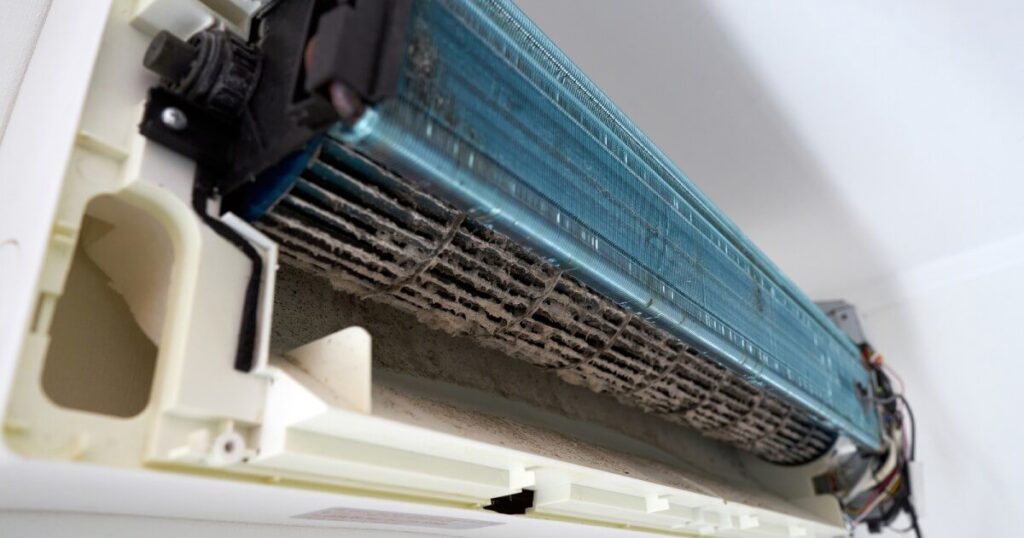
Dirty Evaporator Coil
The evaporator coil plays a crucial role in cooling the air inside your Mitsubishi electric ac. When it becomes dirty or contaminated, it can produce unpleasant odors. Here are some key points to consider:
- The evaporator coil collects dirt, dust, and debris over time, creating an ideal environment for odors to develop.
- If you notice foul smells, inspect the evaporator coil for any visible dirt or grime.
- Consider cleaning the evaporator coil using a soft brush or a commercially available coil cleaner. However, if you’re not confident in doing it yourself, it’s best to consult a professional technician.
Clogged Condensate Drain
A clogged condensate drain can lead to water accumulation and the growth of bacteria, resulting in foul smells. Here are some key points to consider:
- The condensate drain is responsible for removing moisture from your Mitsubishi electric ac. If it becomes clogged, stagnant water can develop.
- Inspect the condensate drain and look for any signs of blockage or standing water.
- Use a wet-dry vacuum or a small brush to clear the drain. Alternatively, a professional technician can perform this task efficiently.
Remember, these potential reasons for foul smells in your Mitsubishi electric ac are common but can be easily addressed. Regular maintenance, including cleaning and inspections, can go a long way in preventing these odors from occurring. If you’re unsure or uncomfortable with DIY solutions, it’s best to reach out to an HVAC professional to ensure your ac system is in optimal condition.
Effective Solutions For Odor Problems
If you’ve noticed an unpleasant odor coming from your Mitsubishi electric ac, don’t worry – there are effective solutions that can help eliminate it. Odor problems can be caused by various factors, such as microbial growth, dust accumulation, or even a clogged drain pipe.
Here are some solutions to consider for tackling those pesky odors:
Clean And Disinfect System Components
- Start by cleaning the air filters, as they can trap dust, dirt, and other contaminants that contribute to odors. Remove the filters according to the manufacturer’s instructions and gently rinse them with water or use a vacuum cleaner.
- After cleaning the filters, it’s important to disinfect them to eliminate any bacteria or mold growth. You can use a mild detergent and water solution or a mixture of vinegar and water for this purpose. Allow the filters to dry completely before reinstalling them.
- Don’t forget to clean the evaporator coil as well, as this component can also accumulate dirt and mold. Use a soft brush or a fin comb to remove any debris, and then spray a coil cleaner onto it. Allow the cleaner to sit for a few minutes and then rinse it off with water.
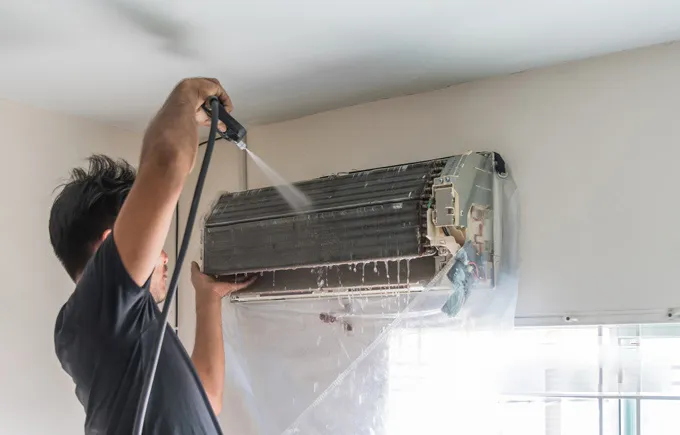
Schedule Professional Maintenance And Cleaning
- Regular maintenance is key to ensuring that your Mitsubishi electric ac operates efficiently and remains odor-free. Consider hiring a professional HVAC technician to inspect and service your system at least once a year.
- During a professional maintenance visit, the technician will thoroughly clean the entire system, including the condenser coil, blower fan, and drain pan. This helps prevent the buildup of dirt, mold, and other contaminants that can cause unpleasant odors.
- The technician will also check for any issues with the drain line or condensate pump, as a clogged or damaged drainage system can contribute to odor problems. They can clear any blockages or repair/replace faulty components as needed.
Install UV Air Purifiers
- UV air purifiers can be a great addition to your Mitsubishi electric ac system for tackling odor problems. These devices use ultraviolet light to eliminate bacteria, viruses, mold spores, and other harmful microorganisms present in the air.
- UV air purifiers are typically installed within the HVAC system, where they can effectively sterilize the air as it passes through. This helps neutralize odors caused by microbial growth and ensures that the air circulating in your home is clean and fresh.
- It’s important to choose a UV air purifier that is compatible with your Mitsubishi electric ac system and have it professionally installed for optimal performance.
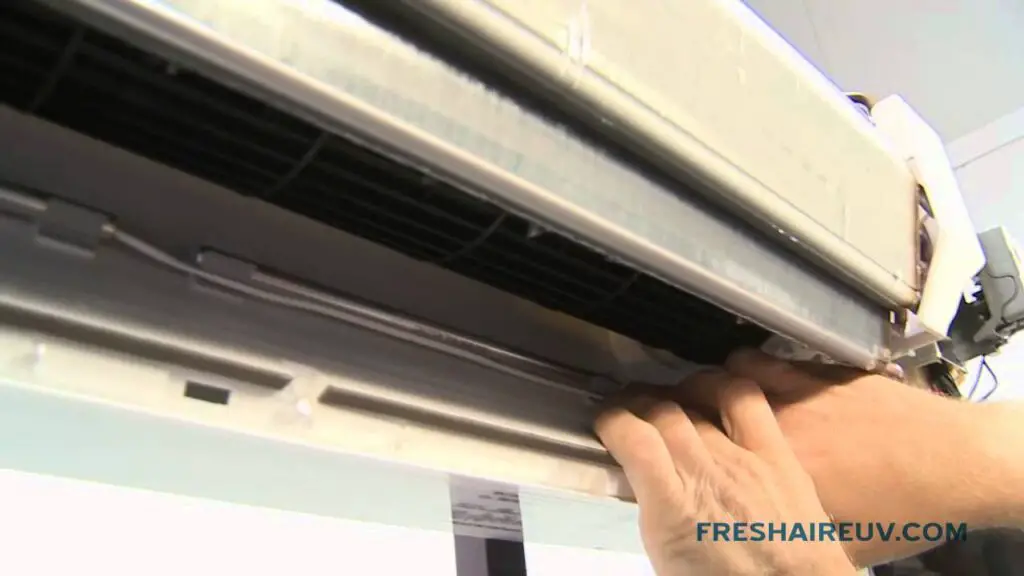
Remember, identifying and addressing the root cause of the odor problem is essential for long-term effectiveness. If the issue persists or if you’re unsure about performing any of the maintenance tasks yourself, it’s always best to consult a professional HVAC technician.
They can provide expert advice and ensure that your Mitsubishi electric ac is working efficiently, providing you with clean and odor-free air.
Common Causes Of AC Failure To Power On
Is your Mitsubishi electric ac failing to power on? There are several common causes that could be behind this issue. Let’s take a closer look at each one:
Tripped Circuit Breaker:
- Power overload: If there are too many appliances or devices connected to the same circuit, it can cause the circuit breaker to trip, cutting off power to your ac.
- Short circuit: A short circuit can occur if there is a faulty electrical connection or damaged wiring. This can also lead to a tripped circuit breaker.
Faulty Thermostat:
- Incorrect temperature setting: Double-check that the thermostat is set to the desired temperature. It’s possible that it may have been accidentally changed.
- Dead batteries: If your thermostat is battery-powered, low or dead batteries can prevent it from functioning properly and powering on your ac.
Power Supply Issues:
- Faulty power outlet: Check the outlet where your ac is plugged in to ensure it is receiving power. Sometimes, outlets can become loose or damaged.
- Power outage: If there is a power outage in your area, your ac will not be able to function until power is restored.
- Issues with the power cord: A damaged power cord can prevent the ac unit from receiving power. Inspect the cord for any signs of wear or damage.
Remember, if you are unsure about the cause of your Mitsubishi electric ac not powering on, it is always best to consult a professional technician who can diagnose and resolve the issue.
Actions To Take When AC Won’t Turn On
Is your Mitsubishi electric ac not working? It can be incredibly frustrating, especially during hot summer months. Before you start to panic and call a technician, there are a few actions you can take to troubleshoot the issue. In this section, we will guide you through the steps you can follow when your ac won’t turn on.
Reset Circuit Breakers And Check Power Connections
If your Mitsubishi electric ac unit is not turning on, the first thing you should do is check the circuit breakers. Here are the key points to keep in mind:
- Locate the circuit breaker panel in your home. It is usually found in the basement, utility room, or garage.
- Look for any tripped breakers. In the case of an ac unit, the breaker may appear slightly switched off or in a middle position.
- Reset the tripped breaker by flipping it to the on position. If there are multiple breakers related to the ac unit, reset them all.
- After resetting the breakers, wait for a few minutes and then try turning on your ac again.
Keep in mind that if the breaker trips again, it may indicate an underlying issue with the electrical system. In such cases, it is recommended to consult with a professional electrician to resolve the problem.
Additionally, it’s important to check the power connections to ensure everything is properly connected. Here’s what you should do:
- Locate the power supply cord for your ac unit and check if it is securely plugged into an electrical outlet.
- Make sure the outlet is functioning by plugging in another device and confirming that it works.
- Inspect the power cord for any signs of damage, such as frayed or worn-out wires. If you notice any issues, it’s advisable to contact a professional for further assistance.
Verify And Adjust Thermostat Settings
Sometimes, the issue with your ac not turning on may be related to the thermostat settings. Here’s what you should do:
- Check the thermostat to ensure it is set to the cooling mode. If it is set to the heating or off mode, adjust it to the cooling mode and try turning on the ac again.
- Verify that the temperature setting on the thermostat is below the current room temperature. If it is set too high, the ac may not turn on.
- Make sure the thermostat’s batteries, if applicable, are not depleted. Replace them if necessary.
By verifying and adjusting the thermostat settings, you can potentially resolve the issue and get your ac up and running again.
Consult An Electrician If Power Supply Problems Persist
If you have followed the previous steps and are still experiencing issues with your Mitsubishi electric ac unit, it may indicate a persistent power supply problem. In such cases, it is recommended to seek the assistance of a professional electrician.
Here’s what you need to keep in mind:
- Contact a reputable electrician to conduct a thorough inspection of your electrical system.
- Explain the steps you have already taken to troubleshoot the ac unit.
- Provide any relevant information or observations regarding power fluctuations or unusual electrical behavior in your home.
- The electrician will diagnose the underlying problem and recommend the necessary repairs or adjustments to restore the functionality of your ac unit.
Remember, it’s important to prioritize safety when dealing with electrical issues. Seeking professional help is always a wise decision to ensure proper diagnosis and resolution without risking further damage.
By following these actions, you can take the initial steps to troubleshoot your Mitsubishi electric ac unit when it refuses to turn on. Remember, regular maintenance and professional assistance are key for the optimal performance of your ac system. Stay cool and comfortable!
How to reset Mitsubishi air conditioner?
To reset your Mitsubishi air conditioner, there are a few steps you can take to ensure that the unit is functioning properly.
Firstly, switch off the power supply to the unit and unplug it from the power source. Wait for a few minutes to allow the unit to cool down before plugging it back in.
Next, locate the reset button on the unit’s control panel, which is typically marked with the word “reset.” Hold down the button for a few seconds until the display screen flashes or beeps.
Finally, turn the unit back on and check to see if the reset has been successful.
If you encounter any issues, consult the user manual or contact a licensed technician for assistance.
Mitsubishi aircon suddenly stopped working?
If your Mitsubishi aircon has suddenly stopped working, there could be a number of potential causes. It’s possible that there may be an issue with the power supply, such as a tripped breaker or a blown fuse.
Alternatively, there may be a problem with the aircon’s thermostat or compressor. In some cases, a dirty air filter or clogged condenser coil may also be to blame. Whatever the issue may be, it’s important to contact a professional aircon technician to diagnose and repair the problem.
Attempting to fix the issue on your own could result in further damage to your aircon unit.
Mitsubishi air conditioner not blowing air?
If your Mitsubishi air conditioner is not blowing air, there are a number of potential causes to consider. Firstly, it is important to check the thermostat to ensure that it is set correctly and that the temperature is within the desired range.
Additionally, a dirty air filter can restrict airflow and may need to be cleaned or replaced. If the air conditioner is still not blowing air, it could be a more serious issue, such as a malfunctioning blower fan or a faulty compressor.
In this case, it is recommended to seek the assistance of a professional HVAC technician to diagnose and repair the issue.
FAQs: Why Is My Mitsubishi Electric AC Not Working?
Why Isn’t My Mitsubishi Electric Ac Cooling My Room?
There could be several reasons for your Mitsubishi electric ac not cooling your room. It could be due to a dirty filter, low refrigerant levels, a malfunctioning thermostat, or a problem with the compressor. It’s best to contact a professional technician to diagnose and repair the issue.
Why Does My Mitsubishi Electric Ac Keep Turning On And Off?
If your Mitsubishi electric ac keeps cycling on and off frequently, it could indicate a problem with the compressor or a faulty thermostat. It’s recommended to check the air filter, clean it if necessary, and ensure all vents are clear of obstructions.
If the issue persists, it’s advisable to consult an HVAC technician.
How Often Should I Clean The Filters In My Mitsubishi Electric Ac?
To ensure optimal performance of your Mitsubishi electric ac, it is recommended to clean the filters every two weeks. However, in high-traffic areas or during peak usage, cleaning the filters once a week may be necessary. Regularly cleaning the filters helps maintain better airflow, improves air quality, and extends the lifespan of your ac unit.
Conclusion
If your Mitsubishi electric ac is not working, there are several potential reasons for the issue. It could be a simple fix, such as a clogged air filter or a tripped circuit breaker. However, if you have checked these common issues and are still experiencing problems, it may be time to call a professional HVAC technician.
They will be able to diagnose any underlying issues with your ac unit and provide the necessary repairs or replacement. Remember to regularly maintain your ac unit by cleaning or replacing the air filter, checking the thermostat settings, and scheduling professional maintenance.
By taking these steps, you can ensure that your Mitsubishi electric ac operates efficiently and provides you with cool comfort during those hot summer months. Don’t let a malfunctioning ac ruin your comfort – take action today and enjoy a consistently cool and refreshing indoor environment.